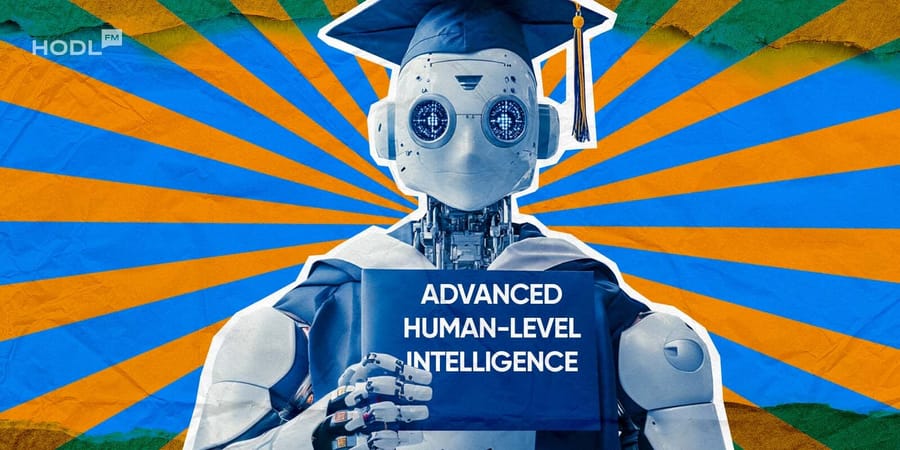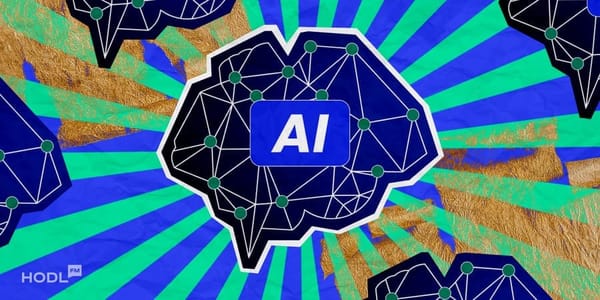OpenAI is preparing to release a new AI agent called “Operator” that can take over the wor—sorry, independently control computers and perform tasks. Set to invade launch in January, this new agent will debut as research preview and developer tool.
🚨 BREAKING
— Haider. (@slow_developer) November 13, 2024
OpenAI is preparing to launch a new computer with an AI agent tool called "Operator" in January.
- OpenAI has also been working on several agent-related research projects. pic.twitter.com/R6h6VcicOb
Based on the hype around it, Operator may just put OpenAI ahead of competitors in the AI race. But how long will that last? Well, not for long, as Dario Amodei, CEO of Anthropic, the builders of Claude, is predicting that human-level AI will be everywhere as soon as 2026.
It’s as if the AI companies are playing their own version of "keeping up with the Joneses." For one, OpenAI’s Operator is behind the likes of Anthropic, which launched their “computer use” capability barely a month ago.
Anthropic just announced Computer Use
— Rowan Cheung (@rowancheung) October 22, 2024
It allows Claude to control your computer screen based on a prompt and take actions on your behalf
The use cases in agentic coding with automated debugging, customer support, and education are going to be INSANEpic.twitter.com/75WUDjjuGW
Google is also rumored to be working on their own Anthropic Computer Use copypasta called Gemini 2.0. Plans for release are slated for December 2024, but there’s no concrete date yet—well, December is just a few weeks away, so we can wait.
BREAKING 🚨: Google is preparing to launch a new model: Gemini-2.0-Pro-Exp-0111!
— TestingCatalog News 🗞 (@testingcatalog) November 7, 2024
This model will appear under the Advanced section but it is unclear if it is aimed at an internal testing group or a public launch.
Any good prompts you want me to try? 👀👀👀 pic.twitter.com/SMG2ZfAIxN
While the exact release date for consumers is still under wraps, the development of Operator signals a new era in AI. We're moving from AI that can chat with you about the weather to AI that can potentially check the forecast, book your flights, and pack your virtual suitcase—all without you lifting a finger.
But here's where things get really interesting. While OpenAI is focusing on computer-controlling AI, Anthropic's CEO, Dario Amodei, is making some bold predictions about the overall advancement of AI technology—I mean, that’s the only thing left to do if everyone else is playing catchup to your model.
Amodei thinks we could see human-level AI as soon as 2026 or 2027. That's right, in just a couple of years, we might have AI that can match or even surpass human capabilities across a wide range of cognitive tasks. It's a bit mind-boggling when you think about it.
This week, Amodei talked to podcaster Lex Fridman about how recent progress in artificial general intelligence (AGI) is like different levels of education. He says we're currently at the PhD level, while last year we were at the undergraduate level, and the year before that, we were at high school level.
This is Dario Amodei, CEO of Anthropic and the mind behind Claude
— Ken Cato (@kenneth_cato) November 13, 2024
One of the most advanced AIs in the world.
In a recent 5.5 hour conversation with Lex Fridman, he shared Anthropic's vision and their timeline for reaching superintelligent AI.
The projection? 🧵 pic.twitter.com/wXJhrYwMtF
Of course, Amedei acknowledges that there could be some roadblocks along the way. There might not be enough data to train these AI models to reach their true potentials—and it’s currently happening. Yesterday, we reported about how many of these AI companies are currently facing a roadblock in creating smarter AIs due to limited resources. These companies are currently reaching a point of diminishing return.
Important food for thought, if you care about Generative AI:
— Gary Marcus (@GaryMarcus) November 12, 2024
Six months ago I predicted that LLMs were beginning to reach a point of diminishing returns. 𝗔𝗹𝗹 𝘀𝗶𝗴𝗻𝘀 𝗻𝗼𝘄 𝘀𝘂𝗽𝗽𝗼𝗿𝘁 𝘁𝗵𝗮𝘁 𝗰𝗼𝗻𝗷𝗲𝗰𝘁𝘂𝗿𝗲.
But it is not the only prediction I made: 𝗜… pic.twitter.com/usQmqX0wAw
Of course, there’s always a way out, as companies like Safe Superintelligence (SSI) are already pivoting to new strategies. But let’s see how well that pans out.
And let's not forget about potential geopolitical conflicts that could impact microchip production. But if things keep progressing at the current rate, we're on track for some major AI breakthroughs in the next few years.

Disclaimer: All materials on this site are for informational purposes only. None of the material should be interpreted as investment advice. Please note that despite the nature of much of the material created and hosted on this website, HODL FM is not a financial reference resource and the opinions of authors and other contributors are their own and should not be taken as financial advice. If you require advice of this sort, HODL FM strongly recommends contacting a qualified industry professional.





